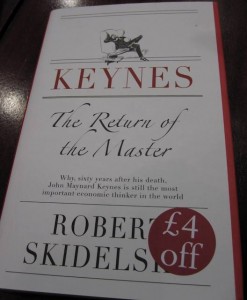No, not the country, which seems fine, but the Attorney General of the same name. As the saga of her employment of a housekeeper whose visa had expired unfolded, I fell to muttering about there being one law for politicians and one for the rest of us. As indeed did most of the country. But Michael White, the Guardian‘s Political Editor, has an interesting take on it in this morning’s paper.
As I noted here the other day, of the two couples in this tale, three of the four people – Scotland, her barrister husband and Tapui’s British solicitor husband – are all lawyers who ought to have been more careful to secure her residential status, a relatively easy thing to do for someone with a British spouse.
So only the non-lawyer in the case has lost her job. But should Scotland, who helped pass the relevant legislation as a Home Office minister and is the cabinet’s legal adviser, lose hers, too?
Phone-ins and chatrooms have been crowded since this morning’s announcement of the administrative (not criminal) penalty, with people complaining that it’s one law for the rich, another for the poor. Is that true in this case? I doubt it.
The laws against employing illegal immigrants are designed to deter people who do it systemically – either in business or their own homes – to gain cheap, malleable workers who can’t complain much.
I don’t think that motive will have applied to either party here, do you?
So what it’s really about is whipping up negative feeling about immigrants, legal or not, and the jobs they do in our economy, often because we won’t do them ourselves (or at least not for the money on offer).




